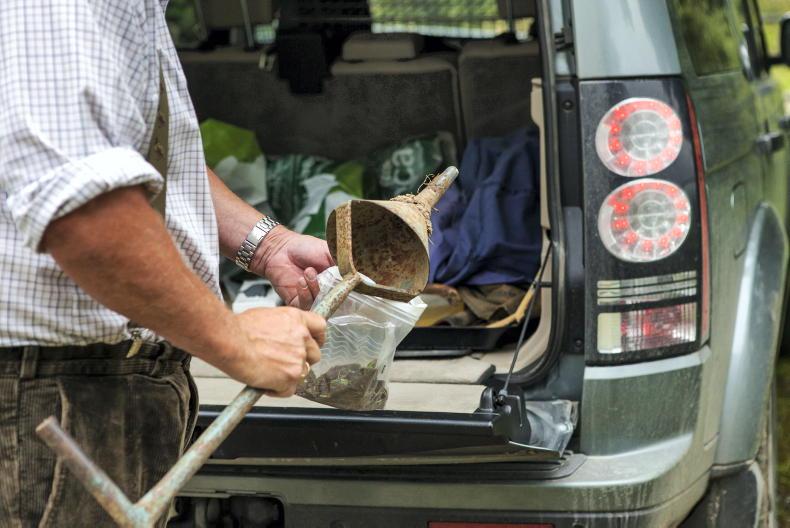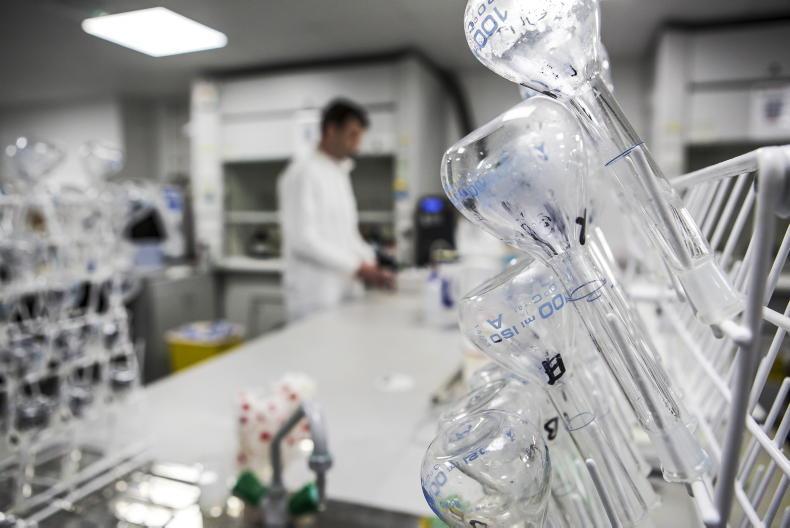Analysis undertaken by economists at the Agri-Food and Biosciences Institute (AFBI) suggests that the implementation of tariffs (taxes) on food imports could play an important role in lowering the overall carbon footprint of global food production.
The work utilised the FAPRI-UK model, an economic model originally developed by staff at AFBI and the University of Missouri, which is now widely used to analyse the impact of major policy changes on UK agriculture.
Explaining the background to the study, Dr Erin Sherry from AFBI said the aim was to look at how the UK could potentially avoid “carbon leakage” while reducing greenhouse gas (GHG) emissions.
The effects of “carbon leakage” are important to farmers.
The concern is that national policies are brought in to encourage lower emissions from UK agriculture, which could add to costs of production. These higher costs make locally produced food less competitive in the market, output falls, and the UK ultimately becomes more reliant on imports that come with a higher carbon footprint. So, while the UK might have lower emissions from its own food production system, it actually has a greater global impact on climate change if other countries expand production to fill the gap.
Tariffs
One way to prevent that happening is to have a system of tariffs on imported higher carbon intensity food.
The latest analysis by AFBI looked at three commodities – beef, butter and cheese, and considered what impact tariffs on imports might have on UK production, prices to farmers, import and export volumes, and ultimately both domestic and global GHG emissions.
The work also considered the opposite scenario where imports of beef, butter and cheese have a lower carbon footprint than UK domestic production.
Rate
The tariff rate chosen was 25% of the five year average price of each commodity, so it is a significant tax that would act as a barrier to trade.
“We applied a tariff that will try to stop a price advantage for the country that is more polluting per unit of output,” explained Dr Sherry, who added that it is not a policy proposal, but simply an exercise to see what impact such a trade barrier might have.
Advantage
The work showed that when the UK has the carbon advantage (lower emissions per kg) the tariff policy as proposed would lead to higher UK production and higher farmgate prices. Imports of beef, butter and cheese would fall, as would UK exports because a greater share of domestic product is consumed on the home market.
In this scenario, UK “source” emissions (the emissions associated with primary production of food) go up as more home-grown beef, butter and cheese is produced in the UK.
However, “use” emissions (the emissions associated with all food consumed in the UK) go down. Overall, global GHG emissions fall.
Opposite scenario
In the opposite scenario, where UK produced beef, butter and cheese has a higher carbon footprint per kg than the rest of the world, the FAPRI-UK model throws up some interesting and unexpected results.
The 25% tariff is applied to UK exports and this results in less beef, butter and cheese being exported outside the UK, which has a negative impact on producer prices, leading to lower UK production.
However, UK imports also fall as there is more domestic produce that needs to find a home on the UK market.
“Source” emissions are down as less UK beef, butter and cheese is produced, however “use” emissions go up as the domestic market is more reliant on relatively high carbon intensity UK product.
Global emissions
The model actually shows that both scenarios lead to lower overall global GHG emissions, which potentially suggests that if the UK government decided to apply tariffs on high emission intensity beef, butter or cheese (in either direction) it would have a positive impact.
Discussion
Summarising the work, Dr Sherry points out that these are complex issues, and the scenarios explored in the model are aimed at stimulating discussion around how best to avoid “carbon leakage” in the future.
However, the analysis clearly shows that driving down emissions per kg is in the best interests of local farmers – if it can be done without adding significantly to cost.
Read more
Lower GHG emissions and higher profit with clover
Nothing to fear in carbon audits says AFBI Director
Analysis undertaken by economists at the Agri-Food and Biosciences Institute (AFBI) suggests that the implementation of tariffs (taxes) on food imports could play an important role in lowering the overall carbon footprint of global food production.
The work utilised the FAPRI-UK model, an economic model originally developed by staff at AFBI and the University of Missouri, which is now widely used to analyse the impact of major policy changes on UK agriculture.
Explaining the background to the study, Dr Erin Sherry from AFBI said the aim was to look at how the UK could potentially avoid “carbon leakage” while reducing greenhouse gas (GHG) emissions.
The effects of “carbon leakage” are important to farmers.
The concern is that national policies are brought in to encourage lower emissions from UK agriculture, which could add to costs of production. These higher costs make locally produced food less competitive in the market, output falls, and the UK ultimately becomes more reliant on imports that come with a higher carbon footprint. So, while the UK might have lower emissions from its own food production system, it actually has a greater global impact on climate change if other countries expand production to fill the gap.
Tariffs
One way to prevent that happening is to have a system of tariffs on imported higher carbon intensity food.
The latest analysis by AFBI looked at three commodities – beef, butter and cheese, and considered what impact tariffs on imports might have on UK production, prices to farmers, import and export volumes, and ultimately both domestic and global GHG emissions.
The work also considered the opposite scenario where imports of beef, butter and cheese have a lower carbon footprint than UK domestic production.
Rate
The tariff rate chosen was 25% of the five year average price of each commodity, so it is a significant tax that would act as a barrier to trade.
“We applied a tariff that will try to stop a price advantage for the country that is more polluting per unit of output,” explained Dr Sherry, who added that it is not a policy proposal, but simply an exercise to see what impact such a trade barrier might have.
Advantage
The work showed that when the UK has the carbon advantage (lower emissions per kg) the tariff policy as proposed would lead to higher UK production and higher farmgate prices. Imports of beef, butter and cheese would fall, as would UK exports because a greater share of domestic product is consumed on the home market.
In this scenario, UK “source” emissions (the emissions associated with primary production of food) go up as more home-grown beef, butter and cheese is produced in the UK.
However, “use” emissions (the emissions associated with all food consumed in the UK) go down. Overall, global GHG emissions fall.
Opposite scenario
In the opposite scenario, where UK produced beef, butter and cheese has a higher carbon footprint per kg than the rest of the world, the FAPRI-UK model throws up some interesting and unexpected results.
The 25% tariff is applied to UK exports and this results in less beef, butter and cheese being exported outside the UK, which has a negative impact on producer prices, leading to lower UK production.
However, UK imports also fall as there is more domestic produce that needs to find a home on the UK market.
“Source” emissions are down as less UK beef, butter and cheese is produced, however “use” emissions go up as the domestic market is more reliant on relatively high carbon intensity UK product.
Global emissions
The model actually shows that both scenarios lead to lower overall global GHG emissions, which potentially suggests that if the UK government decided to apply tariffs on high emission intensity beef, butter or cheese (in either direction) it would have a positive impact.
Discussion
Summarising the work, Dr Sherry points out that these are complex issues, and the scenarios explored in the model are aimed at stimulating discussion around how best to avoid “carbon leakage” in the future.
However, the analysis clearly shows that driving down emissions per kg is in the best interests of local farmers – if it can be done without adding significantly to cost.
Read more
Lower GHG emissions and higher profit with clover
Nothing to fear in carbon audits says AFBI Director









SHARING OPTIONS